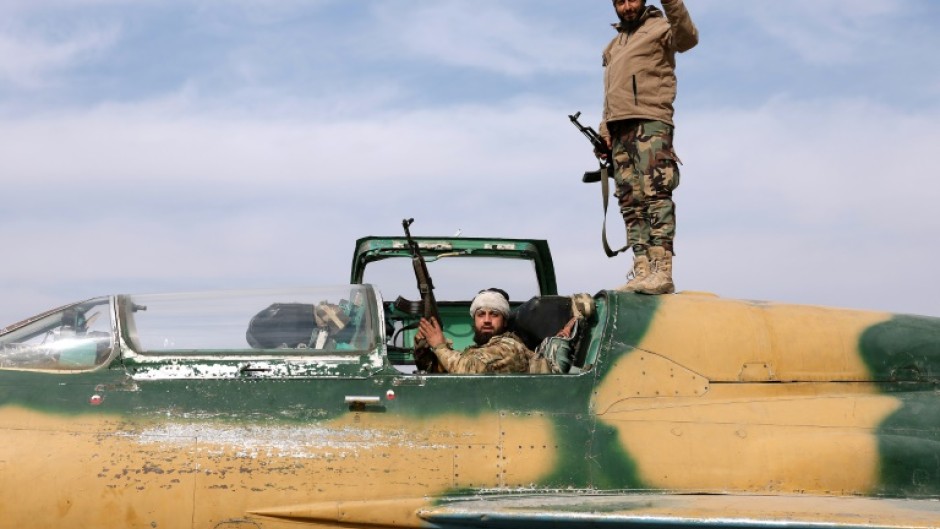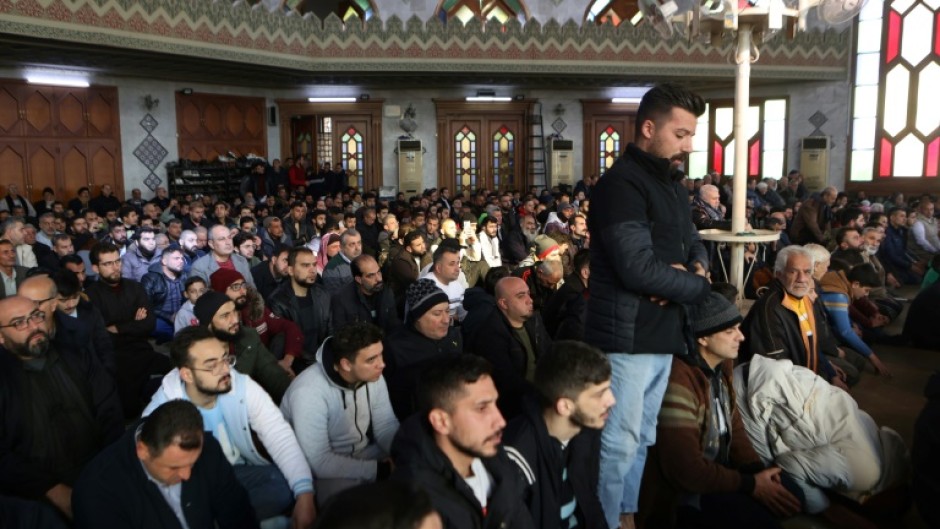Syria's embattled government said Saturday it was setting up a ring of steel around Damascus, state media reported, as rebels on a lightning advance said they were bearing down on the city.
"There is a very strong security and military cordon on the far edges of Damascus and its countryside, and no one... can penetrate this defensive line that we, the armed forces, are building," Interior Minister Mohammed al-Rahmoun told state television from the capital.
Earlier, President Bashar al-Assad's government denied that the army had withdrawn from areas around Damascus.
"Our forces have begun the final phase of encircling the capital," said rebel commander Hassan Abdel Ghani, with the Islamist-led alliance that launched the offensive.
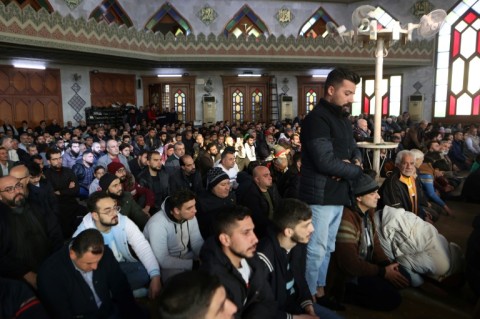
The leader of Hayat Tahrir al-Sham (HTS), the Islamist group which has headed the assault, told fighters to prepare to take Damascus, just over a week into a renewed offensive in the long dormant conflict.
"Damascus awaits you," said HTS's Ahmed al-Sharaa on Telegram, using his real name instead of his nom de guerre, Abu Mohammed al-Jolani.
But the defence ministry insisted: "There is no truth to news claiming our armed forces... have withdrawn" from positions near Damascus.
AFP has been unable to independently verify some of the information provided by the government and the rebels, as its journalists cannot reach the areas around Damascus where the rebels say they are present.
In a Damascus suburb Saturday, witnesses said protesters toppled a statue of Assad's father, the late president Hafez al-Assad.
Similar scenes were witnessed in images shared by local media in the southern city of Daraa and in online footage verified by AFP from Hama, north of Damascus.
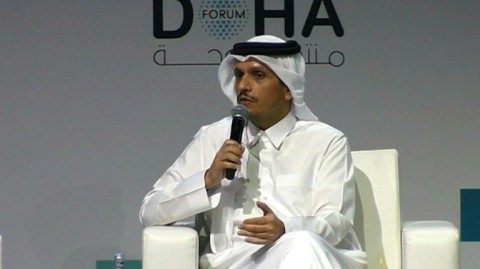
"The rebels entered Hama, it was a great joy for us -- something we had been waiting for since 2011," said resident Maymouna Jawad, of the year Assad's crackdown on democracy protests escalated into civil war.
The presidency denied reports that Assad had left Damascus, saying he was "following up on his work and national and constitutional duties from the capital".
The HTS leader said in a CNN interview Friday that "the goal of the revolution remains the overthrow of this regime".
- Fears of 'chaos' -
As government forces fall back, a war monitor and Abdel Ghani said rebels were within 20 kilometres of Damascus.
The Syrian Observatory for Human Rights said government forces had ceded more key ground, losing control of all of southern Daraa province, cradle of the 2011 uprising.
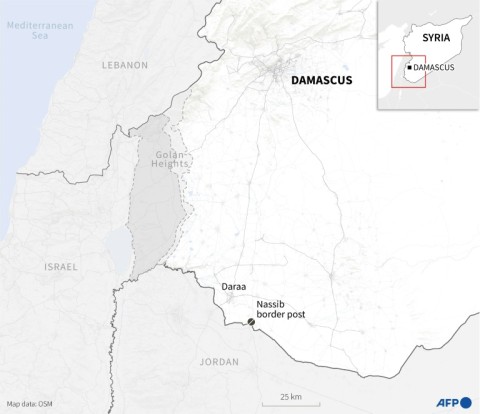
The army said it was "redeploying and repositioning" in Daraa and another southern province, Sweida.
The Britain-based Observatory said troops were also evacuating posts in Quneitra, near the Israeli-annexed Golan Heights.
Israel's military said Saturday it was helping UN peacekeepers in the Syrian part of the Golan to repel an attack "by armed individuals" bordering the UN-patrolled buffer zone.
Jordan has urged its citizens to leave neighbouring Syria "as soon as possible", as have Assad ally Russia and the United States, which both keep troops in Syria.
After the HTS-led rebels seized Aleppo and Hama earlier in their offensive, Daraa was taken by local armed groups, the Observatory said.
An AFP correspondent in the province saw local fighters guarding public property and civil institutions.
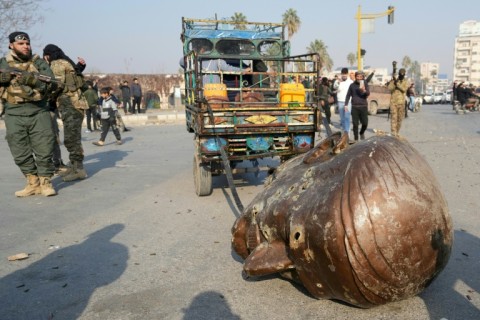
In Sweida city, a local fighter told AFP that after government forces had withdrawn "from their positions and headquarters, we are now securing and protecting vital facilities".
In the central Homs area, a key stepping stone to Damascus, the Observatory said government forces had brought "large reinforcements" and stopped the rebel advance.
Government forces have also pulled out of Deir Ezzor in the east, with Kurdish-led forces saying they had moved in.
An Iraqi security source told AFP that Baghdad has allowed in hundreds of Syrian soldiers, who "fled the front lines", through the Al-Qaim border crossing. A second source put the figure at 2,000 troops, including officers.
- 'Find peace' -
HTS is rooted in the Syrian branch of Al-Qaeda. Proscribed as a terrorist organisation by Western governments, it has sought to soften its image in recent years.
The Islamist rebels have sought to reassure minority groups living in areas they now control.
"We ask that all sects be reassured... for the era of sectarianism and tyranny has gone away forever," said Abdel Ghani.
Since the offensive began last week, at least 826 people, mostly combatants but also including 111 civilians, have been killed, the Observatory said.
The United Nations said the violence has displaced 370,000 people.
UN special envoy to Syria Geir Pedersen called for "urgent political talks" to implement Security Council Resolution 2254 of 2015, which set out a roadmap for a negotiated settlement.
US President-elect Donald Trump, in Paris for the reopening of Notre Dame cathedral, posted on his Truth Social platform that the United States should "not get involved".
US Secretary of State Antony Blinken called Friday for a "political solution to the conflict", in a call with Turkish Foreign Minister Hakan Fidan.
After Fidan and his Iranian and Russian counterparts discussed Syria in Qatar on Saturday, Iran's Foreign Minister Abbas Araghchi said they agreed on the initiation of "political dialogue between the Syrian government and legitimate opposition groups".
Russia's Sergei Lavrov said it was "inadmissible" to allow a "terrorist group to take control" of Syrian territory.
Moscow and Tehran have supported Assad's government and army during the war, as has Lebanese armed group Hezbollah.
A source close to Hezbollah said it had sent 2,000 fighters into Syria, to an area near the Lebanese border, "to defend its positions".
Turkish President Recep Tayyip Erdogan, whose government backs some armed groups in northern Syria, said Saturday that Syria "is tired of war, blood and tears".
"Our wish is for our neighbour, Syria, to find the peace and tranquility it has been dreaming of for 13 years."
By Aya Iskandarani

